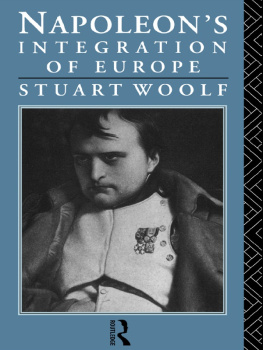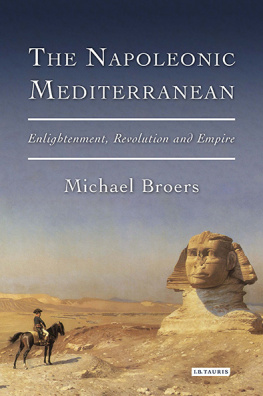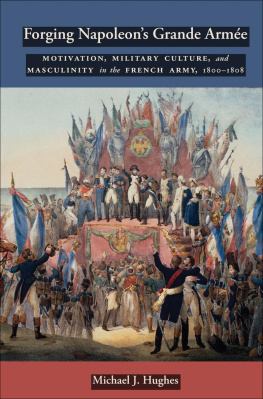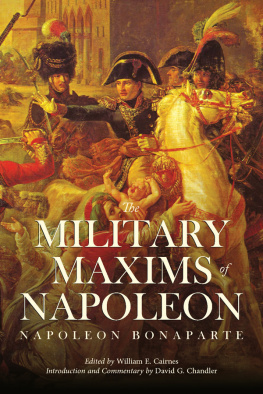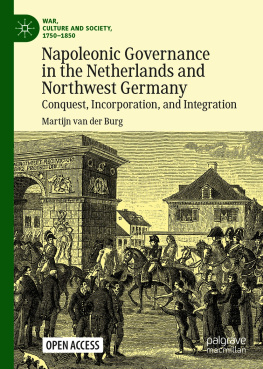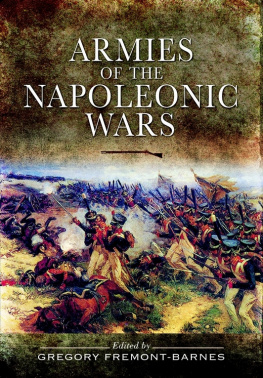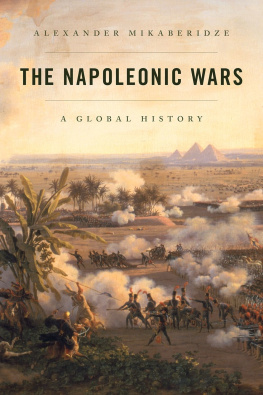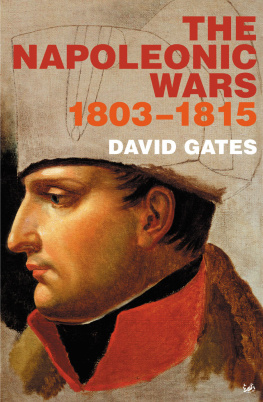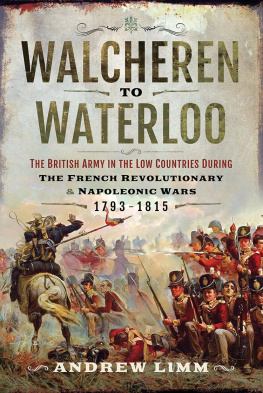First published 1991
by Routledge
11 New Fetter Lane, London EC4P 4EE
This edition published in the Taylor & Francis e-Library, 2003.
Simultaneously published in the USA and Canada
by Routledge
a division of Routledge, Chapman and Hall, Inc.
29 West 35th Street, New York, NY 10001
1991 Stuart Woolf
All rights reserved. No part of this book may be reprinted or reproduced or utilized in any form or by any electronic, mechanical, or other means, now known or hereafter invented, including photocopying and recording, or in any information storage or retrieval system, without permission in writing from the publishers.
British Library Cataloguing in Publication Data
Woolf, S.J. (Stuart Joseph)
Napoleons integration of Europe.
1. Europe, 17151815
I. Title
940.253
Library of Congress Cataloging in Publication Data
Woolf, S.J. (Stuart Joseph)
Napoleons integration of Europe/Stuart Woolf.
p. cm.
Includes bibliographical references and index.
1. EuropeHistory17891815. 2. Napoleon I, Emperor of the French, 17691821Influence. 3. EuropeRelationsFrance. 4. FranceRelationsEurope. I. Title.
D308.W661991
940.27dc9024135
ISBN 0-203-40856-X Master e-book ISBN
ISBN 0-203-71680-9 (Adobe eReader Format)
ISBN 0-415-04961-X (Print Edition)
Napoleons Integration of Europe
List of maps
Major Napoleonic battles 17921815
Europe in the period 178999
Europe in the period 18006
Europe in the period 180712
Principal postal and commercial routes in the Empire by 1812
Preface
Napoleon as man and military leader has always attracted writers and readers. Such has been the fascination of his meteoric career that historians have been hard put to defend their hegemony against the incursions of more creative novelists, artists and film-makers. The fascination is easy to understand, the closer one approaches this most private of public personages. There is an unknown Napoleon (perhaps many unknown Napoleons) of whom glimpses are caught unexpectedly in the vast literature. Who would expect the Emperor to be a discerning connoisseur of Paisiellos music (as Berlioz recalled)? Or that this eternal military heros keen sense of smell ill tolerated the stench that accompanied a pillage, in the words of his aide-de-camp, Sgur? The personal sobriety of this corrupter of men is well established; but where did the reality blur into a consciously constructed myth? As Denon, his official fine arts adviser, instructed Grard: Take care to emphasise the full splendour of the uniforms of the officers surrounding the Emperor, as this contrasts with the simplicity he displays and so immediately marks him out in their midst. To quote the great poet Giovanni Pascoli, writing three quarters of a century later: my silent room is filled with the echo of Napoleon dictating.
But history does not just consist of great men, nor are the years of Napoleonic domination explicable in terms of his battlefields.
My concern has been to understand what I believe to be the central problem of the Napoleonic period: the attempt by the political class that had emerged from the Revolution to extend their ideals of progress and civilisation to every region of Europe touched by French armies. The military victories were the necessary premiss and condition of the French presence; but it is simplistic to regard the wars as either the causal factor or indeed an adequate explanation of the Napoleonic years. For contemporaries, the political changes and imposition of a new and uniform model of administrative modernisation constituted a continuous and uninterrupted experience of a dramatically radical nature. It is necessary to follow this experience as it evolved, from the years of the Directory to the collapse of the Empire, in terms of the interaction between the attempt of the French conquerors to create a new and integrated Europe in their own image and the responses of the conquered to this unprecedented experiment. Without French arms, the experiment could never even have been initiated. But in all other respects, to write of conquerors and conquered risks misunderstanding. The aim of the Napoleonic administrators was to convince the peoples who came under their control of the benefits of integration or imitative association by demonstration of the superiority and applicability of the French model of government; it was essentially peaceful and dependent on active collaboration rather than enforced submission. The fundamental problem was the resistance posed by the heterogeneity of the societies over whom the French established control, the multiplicity of cultural identities that have always characterised Europe.
To study this remarkable experience, which was to influence the course of European history through the nineteenth century, has meant reversing the conventional historiographical approach in which what happened outside the frontiers of present-day France is regarded almost as an appendage to the internal history of Napoleonic France orseen from the other sideas (a usually undesirable) interruption in a teleologically oriented history of individual nation-states. I have attempted to bring together in an explicitly comparative manner the experiences of French rule across the entire Continent. This has meant, on the one hand, a constant attention to the relationship between internal developments in France during the Directory, Consulate and Empire and the evolution of the French administrative presence outside her frontiers; and, on the other hand, a concern to highlight the similarities and dissimilarities between different European societies, as they responded to the French presence. Hence, geographically, I have not limited myself to the regions progressively annexed by France, but have sought to bring into my discussion states which were directly controlled by France, whether they were satellites (like Westphalia or Naples) or formally more independent allies (like Bavaria).
Inevitably there are limitations to so vast and challenging an enterprise. The first is linguistic. My inability to read the historiography in Dutch, Flemish, Polish or Russian has necessarily impeded me from acquiring that depth of knowledge that provides the historian with confidence; I hope my discussions of the relevant regions are not too superficial. In one casethe Russian response to Napoleons invasionI have preferred, out of ignorance, not even to attempt any remarks.
The second limitation is that a work of synthesis and interpretation of this sort cannot be based on original research on all aspects. I began my research in the archives many years ago on Italy under French rule and then extended this, in the Archives Nationales of Paris, to prolonged study of the mechanisms and social implications of the administration of the Empire, and in particular of the significance attributed to statistics and of the problems of poverty. But necessarily I have been dependent on the research of generations of scholars across Europe in order to understand the overall dimensions of the task I had set myself. The hypotheses which lay at the origins of this book emerged out of a combination of my own research and the cumulative results of such historiography. My knowledge remains deeper of some parts of Europe than of others, although I hope this has not affected my overall interpretation.
I owe a debt of gratitude to more people than I can name here. I would like to thank Louis Audibert for offering me the challenge of writing this book. It could not have been written without the exhilarating experience of my years in the Department of History and Civilization of the European University Institute, where the juxtaposition of national intellectual approaches and academic traditions necessitates an unending reflection on the meaning of Europe and its cultural identities; I am deeply grateful to my colleagues and research students from whom I have learnt so much in formal seminars, innovative theses and informal discussions. I wish to thank Paola Querci, Anna Debenedetti and Bonnie Bonis for their eagle eyes in spotting obscurities of expression. Daniel Roche and Heinz-Gerhard Haupt have been patient and understanding friends, as well as professional colleagues, always ready to read and suggest improvements. Naturally the responsibility for the opinions and conclusions expressed in this book remains wholly mine.

